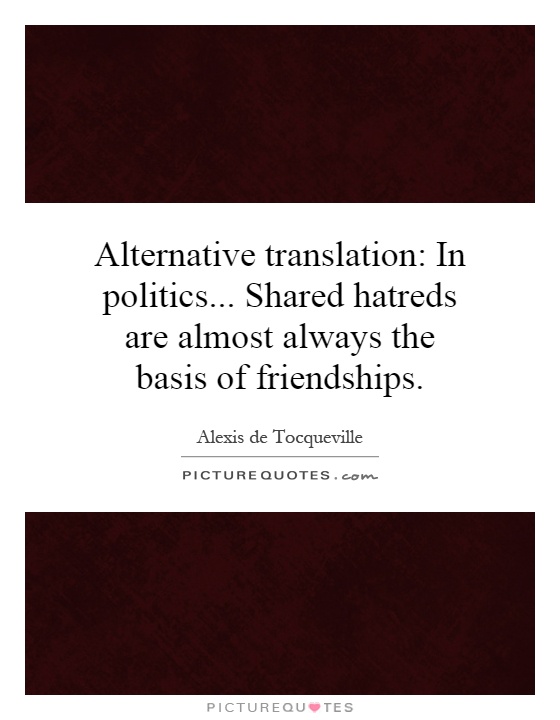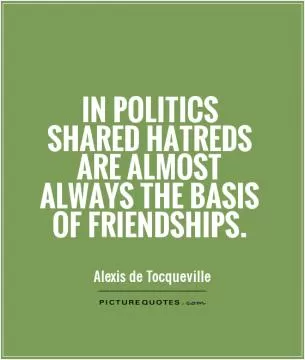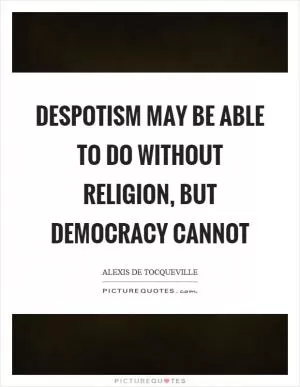Alternative translation: In politics... Shared hatreds are almost always the basis of friendships

Alternative translation: In politics... Shared hatreds are almost always the basis of friendships
Alexis de Tocqueville, a French political thinker and historian, is best known for his work "Democracy in America," in which he explores the nature of democracy and the potential pitfalls that come with it. One of the key themes that Tocqueville touches upon in his work is the idea that shared hatreds often form the basis of friendships in politics.In the context of Tocqueville's work, the idea of shared hatreds as the basis of friendships in politics can be seen as a reflection of the divisive nature of political discourse. Tocqueville believed that in a democratic society, where individuals are free to express their opinions and beliefs, there is a tendency for people to form alliances based on what they oppose rather than what they support. This can lead to the formation of political factions and parties that are united by a common enemy rather than a shared vision for the future.
Tocqueville's observation about shared hatreds in politics can also be seen as a commentary on the role of emotions in shaping political relationships. In a democracy, where individuals are free to express their feelings and opinions, it is not uncommon for people to form bonds with others who share their anger, frustration, or resentment towards a particular group or ideology. This can create a sense of solidarity and camaraderie among individuals who may otherwise have little in common.
However, Tocqueville also warns against the dangers of allowing shared hatreds to dominate political discourse. He believed that when individuals are driven by negative emotions such as hatred, they are more likely to act impulsively and irrationally, leading to the breakdown of civil discourse and the erosion of democratic values. Tocqueville believed that in order for democracy to thrive, it is essential for individuals to engage in reasoned debate and dialogue, rather than allowing their emotions to dictate their actions.












 Friendship Quotes
Friendship Quotes Love Quotes
Love Quotes Life Quotes
Life Quotes Funny Quotes
Funny Quotes Motivational Quotes
Motivational Quotes Inspirational Quotes
Inspirational Quotes